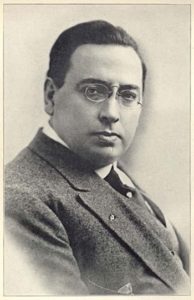
Ned Waybrun
*Ned Wayburn was born on this date in 1874. He was a Black choreographer.
Edward Claudius Weyburn was born in Pittsburgh, Pennsylvania, to Elbert Delos Weyburn and Harriet Landon Beach. Chauncey Weyburn was his paternal grandfather. Ned Wayburn spent much of his childhood in Chicago, where he was introduced to theater and studied classical piano.
At 21, he abandoned his family's tradition of manufacturing and began teaching at the Hart Conway School of Acting in Chicago. There, he worked with three faculty members who influenced his growing interest in dance and movement: C.H. Jacobsen, Colonel Thomas Hoyer Monstery, and Ida Simpson-Serven, whose teachings were based on Delsarte's concepts about the meaning of gestures and their ability to communicate the emotion. After leaving the school, Wayburn spent many years in theater staging shows for producers. He worked with such teams as William Hammerstein, Oscar Hammerstein, Marc Klaw, and A.L. Erlanger.
In 1906, he began his Headline Vaudeville Production Company management group. He staged many features through his firm while collaborating with other producers such as Lew Fields, Florenz Ziegfeld, and the Shuberts. In 1915, he began working with Ziegfeld and became the leading choreographer of the Ziegfeld Follies. Wayburn’s choreography was based on five techniques: musical comedy, tapping and stepping, acrobatic work, toe specialties, and exhibition ballroom. As a child, he was captivated by Minstrel shows and recreated them in many of his works. Formation symmetry was typical in minstrel shows, as well as parades.
Wayburn used Minstrel-style costumes and makeup in his show Minstrel Misses (1903). His choreography was influenced by the social dances of the time. His dancers moved in units of two or four, following popular trends. He took dances such as tangos, the Turkey Trot, the Grizzly Bear, the Black Bottom, and the Charleston and recreated them for stage performances by using strong exaggerations of movement. Some of his well-known shows were Phantastic Phantoms (1907), The Daisy Dancers (1906), Havana (1909), The Passing Show (1913), and all of the Ziegfeld Follies. He created steps such as the “Ziegfeld Walk” and the “Gilda Glide” and is credited with developing the talent of such iconic performers like Fred Astaire, Jeanette MacDonald, Gilda Gray, Marilyn Miller, Ann Pennington, Barbara Stanwick, Clifton Webb, Mae West, Groucho Marx, June Allyson, and Fanny Brice.
In 1920, he staged the musical comedy Poor Little Ritz Girl with music by Richard Rodgers and Sigmund Romberg. Ned Wayburn was married three times, from 1897 to about 1905, to Agnes Wayburn (née Agnes Lillian Saye), who had been one of the two original "Florodora" sextets. He then was married, from 1908 to 1916, to Helene "Smiles" Davis (né Helen Sylvia Davis), and then, from 1916 until his death, to Marguerite V. Lee Kirby (maiden). Ned Wayburn died on September 2, 1942.